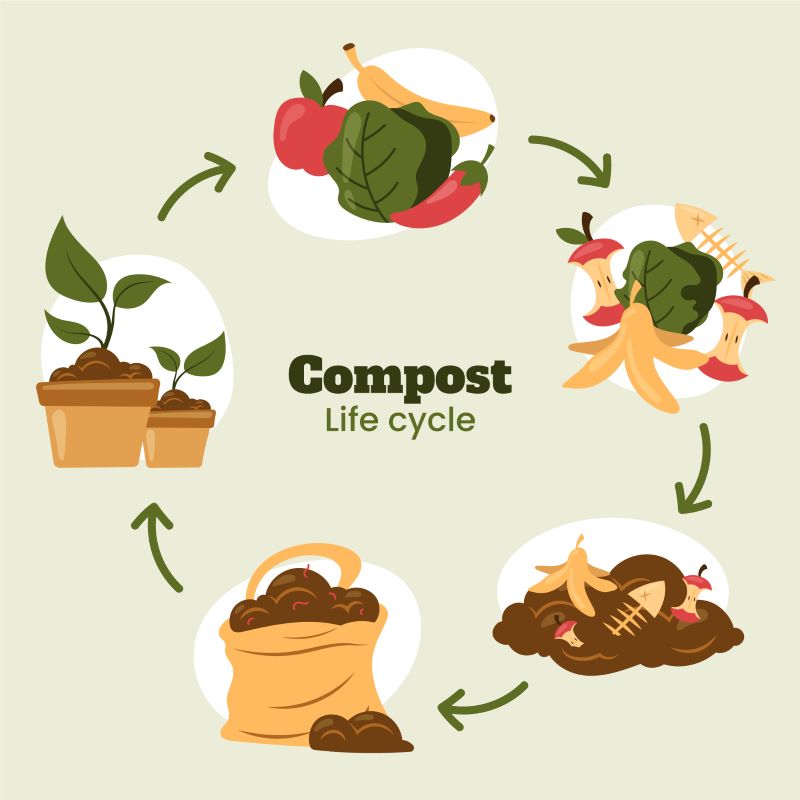Composting is a great way to recycle organic waste and create nutrient-rich soil for your garden. Here's a simple and easy method for composting:
Choose a composting container:
You can use a compost bin, a compost tumbler, or simply create a compost pile in your yard. Make sure the container has adequate drainage and is large enough to hold your compostable materials.Collect compostable materials:
Compostable materials can be divided into two categories: green (nitrogen-rich) and brown (carbon-rich) materials. Green materials include fruit and vegetable scraps, coffee grounds, tea leaves, and grass clippings. Brown materials include dry leaves, straw, shredded paper, cardboard, and wood chips. Avoid adding meat, dairy products, oily foods, and pet waste to your compost.Layer the materials:
Start by adding a layer of brown materials to the bottom of your compost container. Then add a layer of green materials on top. Continue alternating between green and brown layers, making sure to occasionally moisten the pile with water. This layering helps maintain the right balance of carbon and nitrogen in your compost.Turn the compost:
Every few weeks, use a pitchfork or shovel to turn the compost pile. This helps aerate the materials and speeds up the decomposition process. If you're using a compost tumbler, simply rotate it regularly.Maintain the compost:
Keep your compost pile moist but not waterlogged. If it becomes too dry, add some water. If it becomes too wet, add more brown materials to absorb the moisture. You can cover the pile with a tarp or lid to retain heat and moisture.Wait for the compost to mature:
Depending on the conditions and the materials used, composting can take anywhere from a few months to a year. Over time, the materials will break down into a dark, crumbly, and earthy-smelling compost.Use the finished compost:
Once your compost is dark and rich in texture, it's ready to use! Use it as a soil amendment in your garden beds, mix it with potting soil for potted plants, or spread it around the base of trees and shrubs as a natural fertilizer.- Remember, composting is a natural process, and it may take some trial and error to find the best method for your specific situation. With a little patience and care, you can turn your kitchen and yard waste into valuable compost for a greener garden.
